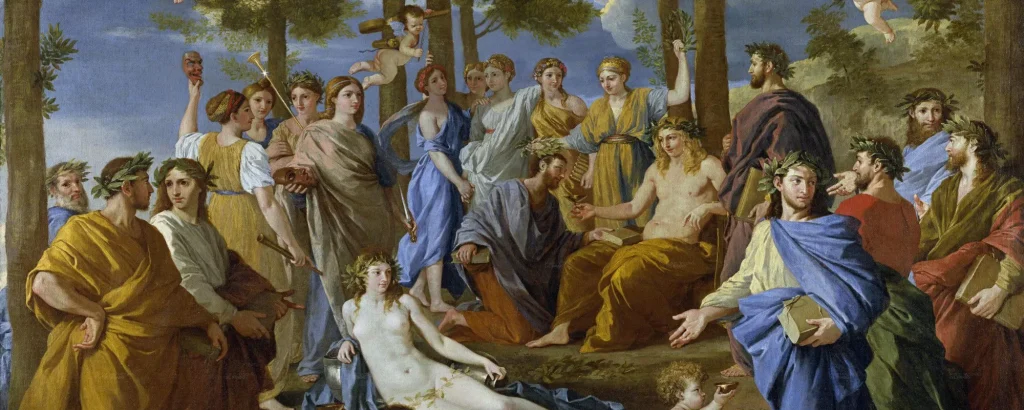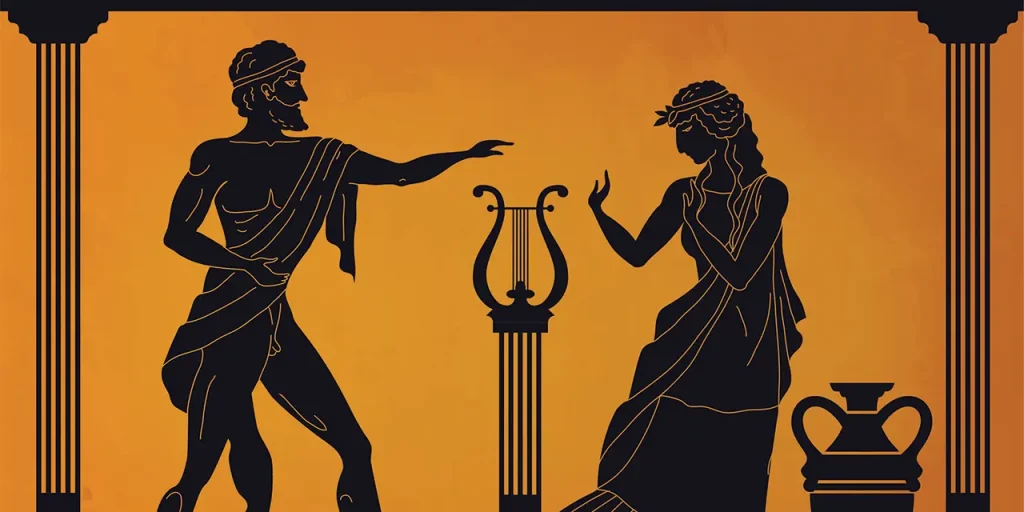Western literature and culture have been greatly impacted by Greek mythology, which is a rich tapestry of stories and characters. These myths, which have their roots in ancient Greece, include a diverse range of tales about heroes, gods, goddesses, and fantastical animals. Greek mythology’s pantheon, major myths, and lasting influence are all examined in this article.

The Pantheon of Greek Gods
The Greek pantheon consists of a diverse array of deities who were believed to inhabit Mount Olympus, the highest peak in Greece. These gods and goddesses each had distinct personalities, domains, and mythological narratives:
- Zeus: Zeus dominated thunder and the sky as the king of the gods. He was frequently shown holding a lightning bolt and was well-known for his strength and authority. Zeus led the Titanomachy, the battle against the Titans, and was a major figure in many myths.
- Hera: Hera, the goddess of marriage and family, was Zeus’s wife and the queen of the gods. Even though she was a queen, she was notoriously envious and competitive, particularly when it came to Zeus’s many wives and children.
- Poseidon: Zeus’s brother was Poseidon, the god of horses, earthquakes, and the sea. He carried a trident and was notorious for being erratic, which could lead to natural disasters and storms.
- Athena: The goddess of wisdom, warfare, and strategy, Athena was known for her intelligence and skill in battle. She sprang fully grown and armored from Zeus’s forehead and was a patron of heroes such as Odysseus and Perseus.
- Apollo: Apollo, the god of the sun, music, healing, and prophecy, was a complex and powerful figure. He was well-known for his oracles, especially the Delphic Oracle, and for his part in a number of myths, such as the one about Daphne’s pursuit.
- Aphrodite: The goddess of love and beauty, Aphrodite was born from the sea foam and had the power to enchant both gods and mortals. Her beauty and allure were central to many myths, including the Trojan War’s origins.
- Hades: Hades was the god of the underworld, in charge of the afterlife and the dead. Though often depicted as grim, he was not necessarily evil; his realm was a necessary part of the cosmic order.
Major Myths and Legends
Greek mythology is filled with epic stories and heroic adventures. These myths explore themes of love, betrayal, bravery, and fate, and they often serve as allegories for human experiences.
- The Iliad and The Odyssey: Greek literature is based on these epic poems, which are credited to the poet Homer. “The Iliad” describes the Trojan War, emphasizing the battle between the Greeks and Trojans as well as the hero Achilles. “The Odyssey” chronicles Odysseus’s journey home from the war, where he meets fabled animals and celestial beings.
- The Twelve Labors of Heracles: In Roman mythology, Heracles—also called Hercules—was a demi-god renowned for his valor and strength. As penance, he was given a series of nearly impossible tasks known as “His Twelve Labors.” Slaying the Nemean Lion, capturing the Golden Hind, and acquiring the Girdle of Hippolyta were some of these labors.
- The Myth of Persephone: Hades kidnapped and transported Persephone, the daughter of the agricultural goddess Demeter, to the underworld. The seasons were created as a result of the earth withering due to her mother’s grief. Spring arrived with Persephone’s yearly return to the surface, and winter arrived with her descent.
- The Story of Theseus and the Minotaur: Theseus, a hero of Athens, volunteered to enter the Labyrinth, a maze designed by Daedalus, to slay the Minotaur, a monstrous creature with the body of a man and the head of a bull. With the help of Ariadne’s thread, Theseus navigated the labyrinth and defeated the beast, freeing Athens from its tribute to Crete.
- The Tale of Pygmalion and Galatea: Pygmalion, a sculptor, fell in love with a statue he had created, which he named Galatea. Moved by his devotion, Aphrodite brought the statue to life, and Pygmalion and Galatea married, living happily ever after.

Influence and Legacy
Greek mythology has left an enduring legacy that extends beyond ancient literature and art. Its influence can be seen in various aspects of modern culture:
- Literature and Art: Numerous literary, artistic, and theatrical creations have been influenced by Greek myths. Greek mythology’s themes and characters have captivated audiences and served as inspiration for modern novels, movies, and Shakespeare’s plays.
- Language and Expressions: Many common expressions and words in the English language have their roots in Greek mythology. Terms like “Achilles’ heel” (a point of vulnerability) and “tantalize” (to tease or torment) derive from mythological stories and characters.
- Psychology and Philosophy: Greek myths have also influenced fields such as psychology and philosophy. Carl Jung’s concept of archetypes and Sigmund Freud’s analysis of mythological themes in dreams reflect the psychological insights drawn from these ancient stories.
- Popular Culture: The gods and heroes of Greek mythology have found their way into modern media, including movies, television shows, and video games. Characters like Zeus, Hercules, and Persephone appear in various forms, demonstrating the timeless appeal of these myths.

Conclusion
Greek mythology provides an enthralling window into ancient Greece’s values, beliefs, and imagination. Throughout history, its tales of gods, heroes, and fantastical animals have influenced literature, culture, and philosophy. We can learn more about the human condition and the age-old pursuit of adventure, meaning, and understanding in our own lives by investigating these myths. Greek mythology’s timeless appeal emphasizes its value as a literary and cultural gem that inspires and uplifts people everywhere.